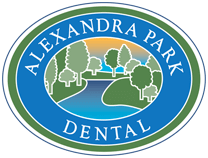The Hidden Dangers of Tooth Grinding: Protecting Your Smile
Teeth grinding, medically known as bruxism, is a common issue that affects people of all ages. This involuntary habit, where individuals clench or grind their teeth, often goes unnoticed until it starts causing serious problems. Although it may seem harmless at first, bruxism can lead to significant dental and overall health issues if left untreated. Fortunately, Alexandra Park Dental in Leduc offers effective treatments to help protect your smile and maintain your well-being.
Understanding Teeth Grinding
Bruxism can occur both during the day and night, impacting children and adults alike. The frequency and intensity of teeth grinding vary among individuals; some may experience it intermittently, while others engage in this behavior regularly. Recognizing the signs and understanding the underlying causes are crucial steps in managing and mitigating its effects.
The Dangers of Teeth Grinding
Teeth grinding can be both painful and damaging to your smile, with potential long-term consequences for your physical and mental health. Here are some of the primary dangers associated with bruxism:
- Loose Teeth
Persistent grinding can weaken the support structures of your teeth, leading to increased mobility. Over time, this can result in tooth loss if not addressed promptly.
- Pain in the Teeth and Face
Excessive clenching exerts significant pressure on the teeth, jaw muscles, and facial regions, often causing chronic pain, tension headaches, and migraines.
- Cracked or Fractured Teeth
The continuous force from grinding can cause cracks or fractures in the teeth, compromising their structural integrity and necessitating extensive dental repairs.
- Worn Down Enamel
Bruxism wears down the protective enamel of your teeth, increasing their sensitivity to temperature changes and elevating the risk of cavities and decay.
- Alignment Issues
The stress from grinding can alter the position of your teeth, leading to malocclusion (misalignment of the bite). This misalignment may require orthodontic treatment to correct.
- Jaw Disorders
Chronic grinding can contribute to temporomandibular joint (TMJ) disorders, resulting in jaw pain, difficulty in chewing, and other functional issues.
- Sleep Disturbances
Nighttime grinding can disrupt sleep patterns, leading to poor sleep quality and associated health problems such as fatigue and decreased cognitive function.
Causes of Bruxism
The exact causes of bruxism are not entirely understood, but it is believed to result from a combination of physical, psychological, and genetic factors. Common contributors include:
- Stress and Anxiety
Emotional stress is a significant trigger for teeth grinding, as the body responds to stress by clenching the jaw.
- Sleep Disorders
Conditions like sleep apnea, insomnia, and other sleep-related issues can increase the likelihood of bruxism during sleep.
- Malocclusion
Misaligned teeth or an abnormal bite can provoke grinding as the body attempts to achieve a more comfortable position.
- Lifestyle Factors
Consumption of caffeine, alcohol, and tobacco can exacerbate bruxism tendencies.
- Genetic Predisposition
A family history of bruxism may increase an individual's risk of developing the condition.
Effective Treatments for Bruxism
The good news is that bruxism is treatable with a variety of strategies aimed at alleviating symptoms and preventing further damage. Effective treatments include:
- Stress Reduction Techniques
Incorporating practices such as meditation, yoga, and cognitive behavioral therapy can help manage the stress and anxiety that contribute to teeth grinding.
- Night Guards
Custom-fitted night guards worn during sleep act as a protective barrier, reducing the impact of grinding and clenching on your teeth.
- Dental Correction
Orthodontic treatments to correct misaligned teeth or an abnormal bite can help alleviate bruxism caused by malocclusion.
- Lifestyle Modifications
Reducing the intake of caffeine and alcohol, establishing a calming bedtime routine, and avoiding stimulating activities before sleep can help mitigate nighttime grinding.
- Medication
In some cases, muscle relaxants or other medications may be prescribed to help reduce muscle activity and alleviate pain.
- Biofeedback Therapy
This technique involves using electronic devices to monitor muscle activity and teach individuals how to control and reduce involuntary grinding.
Take Action Today
Teeth grinding is a manageable condition when identified and treated promptly. Ignoring bruxism can lead to severe dental and health issues that may compromise your smile and quality of life. If you suspect you’re grinding your teeth or experiencing related symptoms such as jaw pain, headaches, or worn-down teeth, don’t hesitate to reach out to Alexandra Park Dental in Leduc.
Our dedicated team is here to help you protect your smile and enhance your overall well-being. Schedule an appointment with us today and take the first step toward a healthier, pain-free smile.
Book Online
Alexandra Park Dental offers the ability to request your dentist appointments online. Schedule an appointment now!
Book OnlineNew Patient Forms
By filling out the New Patient Forms ahead of time you will save significant time on your visit.
New Patient Forms
Dental Hygiene & Cleanings Leduc.
Preventive dentistry is the key to a long-lasting, healthy smile. Professional dental care is just as essential as brushing and flossing regularly. Preventative care in the form of professional dental services is crucial to avoiding difficult and expensive dental issues later on.
